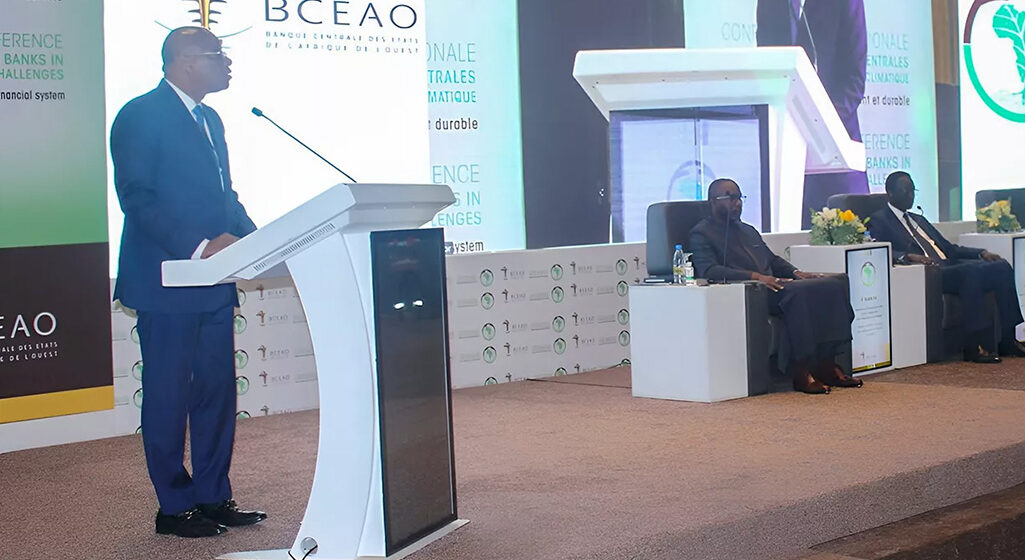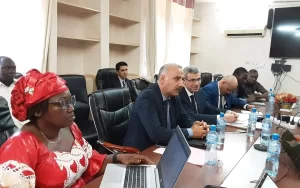International conference stresses Central Banks’ coordinated role in climate change Policies

The recent international conference on the involvement of central banks in climate change adaptation policies, held on February 6 in Diamniadio, near Dakar, emphasized the critical importance of close coordination and collaboration among central banks to effectively combat the impacts of climate change.
Organized by the Central Bank of West African States (BCEAO), the conference underscored the need for financial institutions to work together in establishing comprehensive regulations that contribute positively to the global transition towards environmentally sustainable economies.
Its objectives included fostering a platform for thoughtful discussions and knowledge-sharing on climate policy to enhance the financial sector’s role in achieving climate resilience goals and promoting the transition to sustainable economies among member states.
After the conference, BCEAO Governor Jean-Claude Kassi Brou highlighted key takeaways.
He emphasized the tangible systemic risk presented by climate change and advocated for a regulatory framework empowering central banks to make a positive impact.
«This is a global issue that affects every corner of the planet», he stated, stressing the urgent necessity for coordinated actions by central banks to address this overarching challenge.
Governor Brou also emphasized that while central banks should express interest in understanding the impacts of climate change, they must not lose sight of their primary mission – contributing to financial stability.
«Addressing the impact of climate change on financial stability policies should not compromise the fundamental goals and missions of central banks. Their measures should continue to align with the impacts of climate change on financial stability risks without undermining their core mission», emphasized Mr. Brou.
Let’s recall that discussions during the conference shed light on climate risks in Africa, the significant challenges faced by African nations, and the essential mechanisms needed to align international climate commitments with economic and social development.
The event concluded with a roundtable of central bank governors, resulting in noteworthy recommendations for future actions.
Yann ETERNEL












